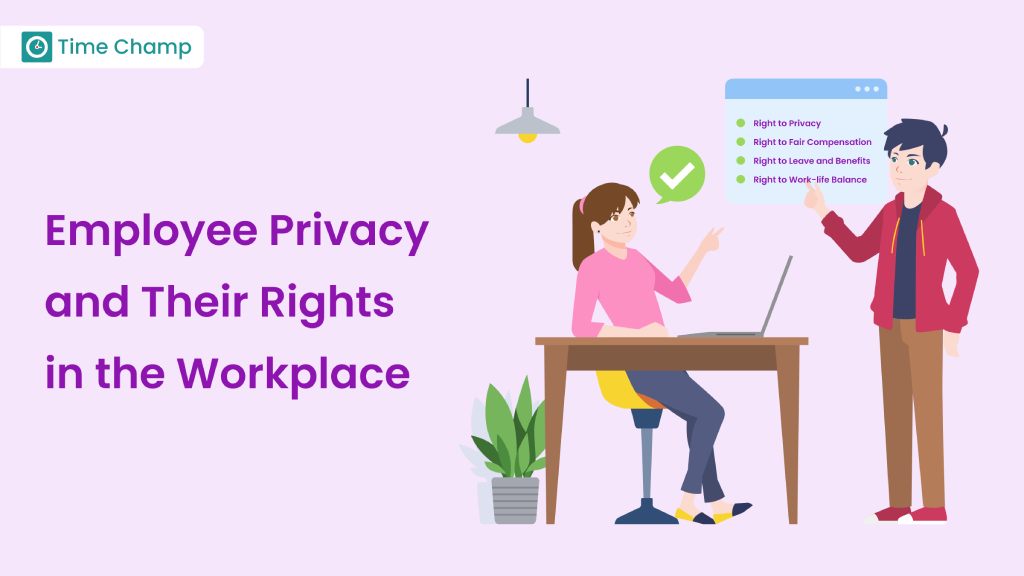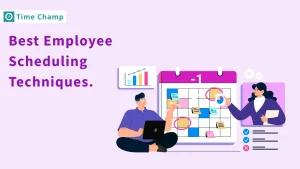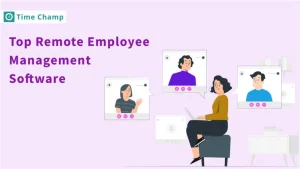In today’s tech-driven world,
employee privacy at work is more
important than ever. For employees,
it is about their right to privacy
and for managers it is about
maintaining data and privacy in the
workplace. This blog breaks down
what you need to know about employee
privacy and rights in a
straightforward way.
Whether
you’re managing a team or just
curious about your own rights, we’ll
show you how to keep your workplace
both productive and respectful.
Dive in to learn how to strike
the perfect balance between privacy
and work in today’s digital age!
What is Employee Privacy in the Workplace?
Employee privacy in the workplace indicates protecting the sensitive information of employees from unauthorized access by an organization. It includes limiting the monitoring, keeping data secure, and respecting personal space, etc. This practice not only builds trust but also creates a healthy work environment.
What are the Privacy Rights of Employees?
When employees enter the workplace,
they not only bring their skills and
dedication– they also bring their
personal lives, which deserve
privacy and respect. It is important
to understand the privacy rights of
employees to foster a trustworthy
work environment.
Let’s have a
clear look at them:
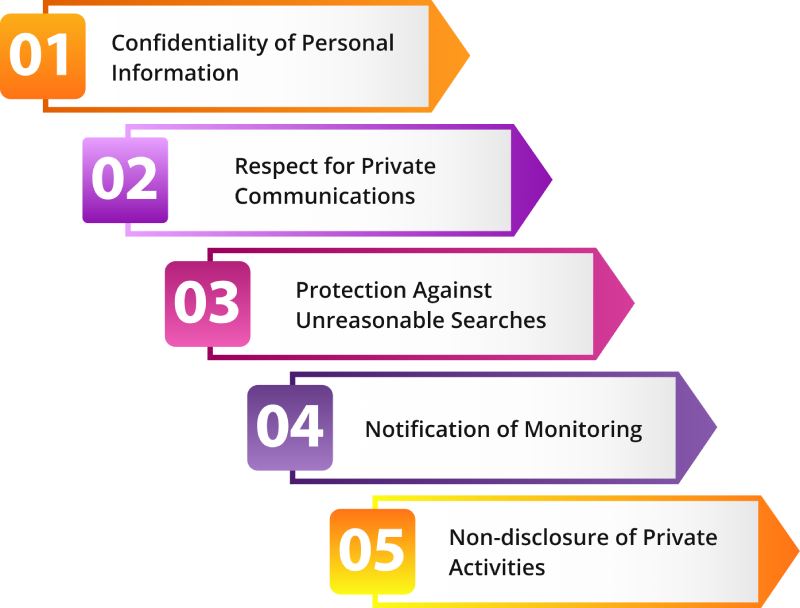
Confidentiality of Personal Information
Employees have the right to expect
that their information will not be
authorized to third parties by their
employers.
For instance, data
like passwords, medical records,
financial data, and other personal
information should be kept
confidential by employers. This
information must not be authorized
by anyone. Further, employers should
only disclose employee personal
information where the law
requires it or with the
employee’s consent.
Respect Private Communications
Employees have the right to privacy
especially on matters concerning
their communication in the workplace
via emails, phone calls, or
messages. Even though employers are
required to monitor communication
systems for purposes of performance,
policy compliance, and security,
such monitoring should be done with
employees’ courtesy.
Employers have to ensure that
employees are aware of the extent
and reason
for the monitoring. Even
though monitoring will be done on
company-owned devices, personal
communication should remain private.
Protection against Unreasonable Searches
Employees have the right not to be
subjected to unreasonable search and
seizure of their personal property
and online accounts. This right
makes it impossible for employers to
perform searches or inspections
without a proper
reason.
Co-workers are not
allowed to search employee’s
belongings like bags, desks, emails,
or personal files without the
employee’s consent and proper
reason.
Notification about Monitoring
Employees have the right to be notified about the monitoring processes. Organizations should make sure that the nature, scope, and purpose of monitoring activities are clear to the employees of the organization.
Transparency helps to ensure that employees understand what data is being collected, how it will be used, and the extent of. This openness is crucial as it provides knowledge to employees that they are protected from unfair treatment and builds trust.
Non-Disclosure of Private Activities
It says that an employee has the right to keep their activities and information confidential especially those are not related to work. Employees are generally assumed to have this right to privacy and employers are expected not to divulge or ask about such activities unless there is a business-related reason such as poor performance or violation of the law.
Why Should Organizations Respect Employee Privacy
When employees join an organization,
they believe that companies don’t
interfere with their privacy. It is
the organization’s responsibility to
respect employee privacy.
This
respect is not only a legal
requirement but also a key element
in creating a positive, ethical, and
effective organizational culture.
Increases Productivity
When employees feel that their data is secure and well maintained, they are more likely to be engaged in their work. With fewer concerns about data security, they can focus better on their tasks. It definitely increases productivity, higher outputs, which in turn boosts overall organization’s performance.
Employee Retention
Privacy at the workplace is a
critical factor that can help
improve employee turnover. If
employees are assured that their
personal details are safe and their
privacy is protected, then they are
likely to be loyal to the
organization. This trust minimizes
anxiety, improves organizational
environment, and decreases turnover.
In the current world, where
jobs are hard to find, employees are
willing to work for organizations
that care about their welfare and
the safety of their information. In
this way, organizations can not only
attract talented people but also
become employers of choice, which is
a key to long-term success.
What are the Frequent Privacy Concerns of Employees Regarding Monitoring?
Employee
monitoring has become a
major part in every organization.
However, it also raises several
privacy concerns as well, which vary
depending on the type of monitoring
and how it is
implemented.
Below are the some
of the frequent employee concerns
regarding monitoring:
Lack of Consent and Awareness
Some organizations don’t communicate with employees about the monitoring process and procedures. Employees may be unaware that they are being monitored, or they might not fully understand the extent and nature of the monitoring. This always remains as a major concern for employees.
Invasion of Personal Privacy
As we know, employee monitoring
tools helps organization to
track how employees spend their time
on various activities. But, some
monitoring tools might collect
personal data such as private
messages, browsing history, data
location, etc. especially on devices
where employees use their personal
devices at work.
Employees may
also be concerned about being
monitored outside of work hours,
which can feel like an invasion of
personal time and space.
Data Security and Misuse
Employees usually have a major concern about whether the data collected is kept secure. If sensitive information is compromised, it could definitely lead to identity theft or other security risks. Since there will be some chances that employers might misuse the collected data. They might use it for discriminatory purposes, or other unethical behaviors.
The above mentioned are the frequent privacy concerns of every employee regarding monitoring. It is better to implement the below strategies to maintain positive workplace environment.
Strategies for Addressing Employee Privacy Concerns during Monitoring
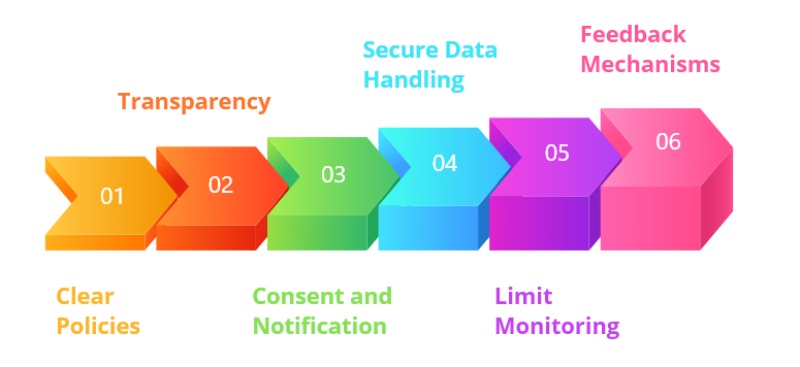
Clear Policies
Organizations should implement clear
policies regarding
monitoring process. The policy
should contain the kind of data is
being collected, when and how it
will be done.
These policies
should be prepared in simple
language so that the employees can
understand. In this way,
organizations make it easier for
employees to understand what
information is collected and why.
This practice creates confidence and
makes employees understand their
rights and the obligations of the
organization.
Transparency
Transparency is important in order to keep a good and healthy relationship between the employer and the employees. Employers must disclose to the employees’ which areas of their performance are being measured. This may involve surveillance of emails, internet usage, time spent on activities, or even physical location through biometrics. Employees must understand not only what is measured, but also how the results of the measurements will be utilized. This reduces the chances of conflict and makes employees feel valued and updated, which can lead to increased productivity and cooperation.
Consent and Notification
Organizations must obtain consent
from employees for monitoring. This
consent should be informed and
clearly communicated. Additionally,
organizations should also state the
reason for the monitoring and inform
employees when they are under
surveillance.
This applies
both to the initial monitoring and
subsequent times, serving as a
reminder to the people being
monitored. Thus, obtaining consent
and giving notifications,
organizations act ethically and
respect employees’ self-governance
and personal space.
Secure Data Handling
Organizations must keep employee’s data secure and well protected. It is important to implement adequate security measures to ensure that the collected data is protected through encryption, access controls, and security audits. This includes protection against external threats, such as hackers, as well as controlling access to the system from within the organization.
Limit Monitoring
Although, monitoring is necessary to
keep employees on track, it is also
important not to overdo it.
Excessive monitoring can make
employees feel that they are being
spied on, leading to a hostile work
environment. This, in turn, can
negatively affect the employees.
Organizations must determine
what type and extent of monitoring
is necessary and eliminate if not
necessary. In this way,
organizations can avoid excessive
monitoring, focus on the important
aspects, thus protecting the privacy
of the employees and creating a more
positive attitude towards the
monitoring process.
Feedback Mechanisms
This must be implemented in every
organization. It is recommended that
organizations should periodically
ask employees how they feel about
the current monitoring practices and
their privacy in the organization.
Yes!
This can be done
through questionnaires, feedback
boxes or even through daily, weekly
or monthly meetings. However, the
feedback gathered should not be
dismissed. Organizations should be
prepared to adjust some of their
policies or practices in response to
the employees’ concerns and
recommendations. By listening to
employees and making the required
changes, organizations demonstrate
that they value their opinions and
will not tolerate unfair treatment
of employees.
Legal Frameworks and Regulations
Knowledge of the legal frameworks and
regulations for data protection and
privacy is critical in ensuring
compliance and safeguarding
sensitive information.
Here
are two major regulations that
affect data protection:
1. General Data Protection Regulation (GDPR)
The General Data Protection
Regulation (GDPR) is a data-saving
law that was created to put into
operation by the European Union on
May 25, 2018. It regulates the way
companies capture, use, and store
personal data of people within
Europe.
The fundamental
principles of GDPR contain
lawfulness, fairness, transparency,
data minimization, accuracy, storage
limitation, and integrity and
confidentiality.
Compliance
with GDPR is a basic requirement for
employees as it guarantees that
their data is handled ethically
within the organization and so their
right to privacy is well maintained.
2. Information Technology (IT) Act
The Information Technology (IT) Act,
which started in October 2000,
mandates that companies must ensure
robust security measures are in
place to protect sensitive personal
information such as financial and
health data.
This law holds
businesses responsible for
safeguarding this data and imposes
penalties if there are any
unauthorized disclosures. Supported
by the IT Rules of 2011, this act
ensures that personal information is
collected and managed
responsibly.
By aligning with
global standards, this legislation
creates a strong foundation that not
only safeguards the privacy of
employees and individuals but also
enhances trust in digital
transactions and communications.
Conclusion
In conclusion, it is important to respect the privacy of the employees in order to maintain a good working environment. Thus, the confidentiality of personal information, the transparency of monitoring, and the proper handling of data contribute to trust and increased morale. Privacy improves the morale of the employees and is good for the business in the long run.
